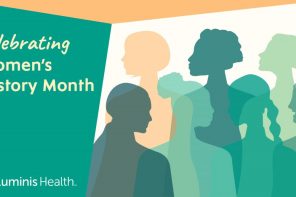With Angelina Jolie in the news recently for preventatively having her ovaries removed—following a preventative double mastectomy just two years ago—many women have questions about genetic counseling and the role it can play in determining your risk for breast and ovarian cancer.
If you test positive for one of the main breast cancer genes, called the BRCA genes, you have up to an 85 percent greater lifetime risk for developing breast cancer, as well as an increased risk for ovarian cancer. Plus, if you’ve already had breast cancer there’s a significantly increased risk for having another breast cancer—nearly 65 percent.
If you find out you have a genetic mutation that puts you at an increased risk of another breast cancer, this may change your initial surgical decision. Instead of pursuing a lumpectomy or a single mastectomy, you may instead choose a bilateral mastectomy. Also, if you are a BRCA carrier you may elect to have your ovaries removed by a certain age because currently we do not have an effective way to screen for ovarian cancer.
Genetic counselors help you figure out the best plan of care if you have or are at risk of having a genetic condition. To make sure you are fully informed before making a decision to proceed with genetic testing, the counselor discusses benefits and limitations, as well as the implications for you and your family of the possible test results.
The genetic counselor reviews your medical and family history, providing information regarding the genetics and natural history of hereditary cancer syndromes and reviewing personalized options for risk reduction and increased cancer surveillance. The goal is to provide a comprehensive risk assessment to determine if genetic testing is reasonable and which genetic test is most appropriate.
The family history takes into account at least first-, second-, and third-degree relatives to establish whether there’s a pattern of cancer in the family that may indicate an increased likelihood of an inherited mutation. Since the majority of cancer is not hereditary, things such as shared environment and lifestyle factors are important to consider. Taking a complete family history allows the genetic counselor to look for certain red flags that guide the discussion and help identify who can benefit from genetic testing.
Ideally, genetic testing starts with a family member who has had cancer because that provides the most useful information for the entire family. While the analysis and interpretation of genetic test results are complex, the test itself only requires a saliva sample or a blood draw and the testing is completed in several weeks.
It’s important to know having a genetic mutation does not mean you will definitely develop either breast or ovarian cancer. Figuring out how to address the increased risk is a personal decision that should be made following consultation with your doctor.
Genetic counseling can provide information to patients to help them choose the best course of treatment, but ultimately the patient and their family will decide what is best for them.
If you think you may be at high risk for breast or ovarian cancer, talk with your doctor about whether genetic counseling may be right for you. Health insurance often covers genetic counseling, so check with your individual plan.





